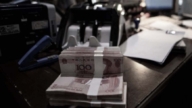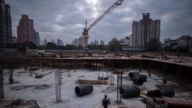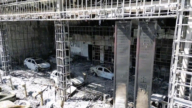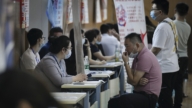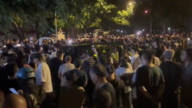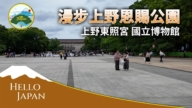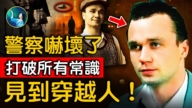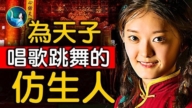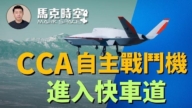【新唐人2013年05月02日訊】關於中共官員財產公示的話題由來已久,尤其在中共新領導人上臺後高調「反腐」的背景下,中國民間要求官員公開財產的呼聲更是一浪高過一浪。最近大陸媒體傳出,中央紀委正在研究全國層面的抽查方案,至少有3種方案備選,但由於意見還不統一,出臺時間仍不確定。
大陸《南方都市報》引述中紀委的消息指稱,全國官員財產申報抽查方案,目前至少有3種辦法納入中紀委的考慮範圍,一是,選定一定的比例隨機抽查。二是採用「新人新辦法、老人老辦法」,對預備提拔的幹部進行抽查。第三種辦法是,當有線索檢舉某些幹部可能存在腐敗行為時,對這批幹部的申報內容進行核查。
一直積極呼籲官員申報財產的大陸作家阮雲華表示,從這三個方案可以看出,當局沒有誠意,沒有把公民的想法當回事,還在迴避矛盾。
大陸作家阮雲華:「隨機抽查甚麼意思,那有些人抽查不到了,他就可以躲過去了,有很多暗箱操作甚至有可能,你為甚麼要有選擇性的做呢﹖它無非是在迴避矛盾,迴避公民的訴求,他這樣做的目地,無非是想一方面應付公民的要求,另外一方面,可以迴避他們那個既得利益階層的矛盾。」
79年大陸「民主牆」創辦人之一蔡桂華認為,中紀委是一個怪胎的體制。
79年大陸「民主牆」創辦人之一蔡桂華:「中共中央集團代表了最高組織領導一切。那麼這樣一個組織裡面滋生出來的一個中紀委,去調查黨委領導下的一級級的官員,我覺得這是不可能的。真正要行之有效,我覺得應該是撇開黨領導一切、黨調查一切這種不正常的中國行政體系,真正的讓司法獨立去進行調查。只有黨外人士去監督黨內人士,這個還有一點可行性。」
近年來,民間要求官員公開財產的呼聲不斷,今年3月,北京民眾在街頭拉橫幅,要求官員財產公示遭打壓,北京維權律師丁家喜、以及維權人士趙常青和孫含會被當局抓捕。4月21號,江西新余獨立參選人與廣東及陝西維權人士一起,舉牌要求官員公示財產。
今年1月,十八屆中紀委二次全會公報指出,要「認真執行領導幹部報告個人有關事項制度,並開展抽查核實工作」。
不過,廣東省人大代表葉鵬智反彈提出,官員也是人,也有隱私,官員不是老百姓的奴隸。他質疑,有法律依據要求官員公開財產嗎?他表示,可以向組織申報財產,但不一定對公眾公開。
而時事評論員林子旭指出,中共內部腐敗官員多如牛毛,如果按照第一個方案按一定比例隨機抽查,整個中共官場必然人心惶惶,隨之出現的反彈也必然非常強烈。
時事評論員林子旭:「按照第二個方案準備提拔的幹部抽查,大家知道在中共的官場能被列為提拔對像的人,往往都是後臺很硬,動這些人牽扯的面就會非常廣,難度也會非常的大。按照第三個方案對被檢舉的人進行調查,中國的這些網民,就會在微博上開足馬力爆料,這樣的話,中共的局面就會變得非常被動,甚至失控,很有可能動搖了中共的根。」
林子旭認為,中共談幹部申報財產只是在忽悠老百姓,除非他們不想保中共這個體制。不過,林子旭觀察,現在的中共體制已經千瘡百孔,牽一髮就會動全身,任何改變都可能帶來連鎖反應,最後導致中共崩盤。
採訪編輯/常春 後製/李勇
CCP Faces Three Options for Official Asset Declaration
In China, the public have been continually asking officials to
declare their assets, mainly after the new leaders took office.
Under the Chinese Communist Party(CCP)’s anti-corruption
campaign, the voices of the people are getting louder.
Recently, rumors from mainland media are saying that
the Central Commission for Discipline Inspection (CCDI)
is studying a program of nationwide checks, although
it’s not yet certain when they will be introduced.
According to the Southern Metropolis Daily,
the CCDI now have three options.
1—randomly check a certain proportion of officials;
2—apply the new method to only new officials
and keep the old method for veteran officials;
3—investigate only when there are reports of corruption.
Ruan Yunhua, mainland writer and advocate of official
asset declaration, comments that from the three options,
one can tell that the CCP authorities are not sincere, but are
trying to avoid the problem and don’t take citizens seriously.
[Ruan Yunhua]: “What does ‘random check’mean?—
that some officials can avoid being checked—
there’re many variations in operation;
why do they have to do the checks selectively?
It’s nothing more than avoiding problems and evading
public demands—what will they accomplish?
Put simply, on one hand they want to cope with the public
and on the other hand they want to avoid conflicts,
while also protecting their personal vested interests."
Cai Guihua, one of the founders of Democracy Wall in 1979
believes that the CCDI’s system is deformed.
[Cai Guihua]: “The CCP Central Committee represents
the highest organizational leadership and the CCDI is within it;
it’s impossible to ask the CCDI to investigate party members.
To really achieve effectiveness, an independent judiciary unit
with non-party personage must supervise all investigations."
In recent years, the public have been continually
asking officials to declare their assets.
In March, 2013, Beijing citizens were suppressed for holding
banners on the streets which asked officials to declare assets,
and officials arrested a few human rights activists.
On April 21st, an independent candidate in Jiangxi Province
and other human rights activists held up placards,
requesting officials to declare their assets.
In January 2013, during the 18th Congress,
the CCDI said that
leading cadres should report relevant personal matters
to the system and carry out random checks.
But Ye Pengzhi, representative of Guangdong
Provincial People’s Congress, argued that
officials are also people and should be allowed
to have their privacy;
they can declare their assets to the organization,
but not to the public.
Political commentator Lin Zixu says,
corrupt officials are abundant;
if random checks apply only to a certain portion of officials,
all of them will be in a sense of panic and the negative reactions will be very strong.
[Lin Zixu]: “With the second option of only checking
cadres who are set to be promoted—
such people normally have a very strong background,
so it will involve many people and be harder.
But taking the third option will cause netizens in China
to operate in full capacity to break news on their microblogs,
thus causing the central government to become very passive,
lose its control and even have its foundation shaken."
Lin Zixu believes that when authorities talk about
the declaration of assets, they are fooling common citizens;
for real change, they must be ready to give up the system.
However, according to Lin』s observations,
the CCP is riddled with problems—any minute change
is likely to create a domino effect, leading to its collapse.



